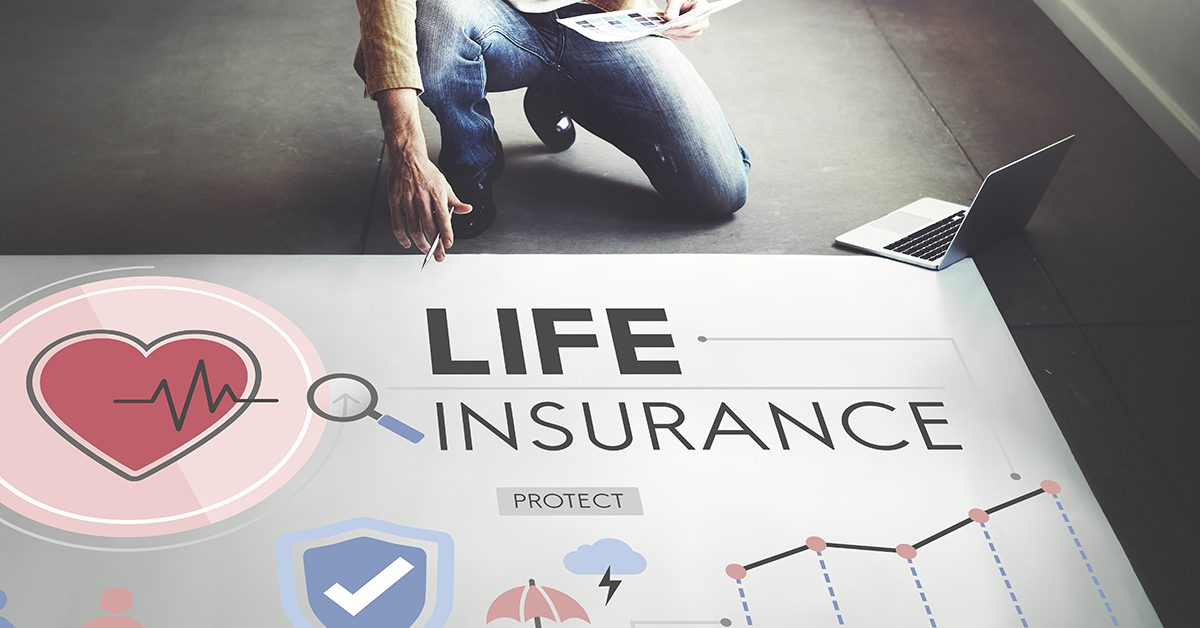Term Life Insurance


Get a free quote
It only takes a few seconds!
Term Life Insurance Quotes
Life Insurance Canada.com Inc. provides Canadians access to over 20 life insurance companies offering term life insurance. Term insurance is the most popular type of life insurance available in Canada because of its affordability and flexibility.
You will find an extensive resource below which talks about how term life insurance works, whom it is designed for, how it is priced and more.
CONTENTS
Last Updated May 25 2023
Understanding Term Life Insurance
Life insurance in Canada has two broad categories, term life insurance and permanent life insurance. Permanent life insurance is often referred to as whole life insurance even though whole life is only one type of permanent life insurance available today. For a primer on the various types of life insurance, see our page outlining the different types of life insurance.
Term life insurance has premiums that are level for specific periods of time. The period of the time is the ‘term’. At the end of the term period, most of these policies have premiums that increase to a new level, then are again level for another term.
For example, a 10 year term life insurance would have premiums that are level for 10 years, increasing every 10 years. You can think of the premiums as looking like a staircase, with steps going up every 10 or 20 years (or whatever the term is). Most of these insurance products differ in how the premiums are structured- not the coverage amount.
How Term Life Insurance Works
Term life insurance is very straightforward and easy to understand once you take the time to learn how it works.
Term insurance is a type of life insurance that provides coverage for a specific number of years, known as the term. The shortest term length available in Canada is 10 years. Typically, you will try to match the length of the term with how long you require life insurance.
Suppose you pass away before the term comes due. In that case, the policy beneficiary (typically your spouse, children or estate) will receive a death benefit. The death benefit is paid out to the beneficiaries as a one-time, lump-sum amount tax-free. Many Canadians must be aware that life insurance is 100% tax-free.


If you still need life insurance at the end of the term (e.g. 10 years), you have different options available.
- You can cancel the policy if you no longer need life insurance at the end of the term.
- Most life insurance companies offer an option to renew your life insurance policy at the end of the term. This means the insurance company will continue offering you insurance without requiring a health questionnaire or medical examination. Regardless of your health, they must offer you another term of insurance. The issue with this is that the cost is very high. You will have to determine if it is worthwhile to pay this increase in price. It may be wise to continue your policy if you are in poor health and can no longer qualify for a new policy.
- If you are in good health, you can submit a new life insurance application and complete a health questionnaire (and medical examination if required) to receive the lowest possible rates. This is what most people do if they still need life insurance at the end of the term. Once approved, you can cancel your old policy and not have to pay the high renewal premiums described above.
- Many life insurance companies offer an option to convert your life insurance policy anytime. This means you can switch from a term life insurance policy to a permanent one without requiring a health questionnaire or medical examination. We recommend speaking with one of our licensed brokers regarding this option, as it can be pretty complex.
Benefits of Term Life Insurance
Term life insurance has many benefits, which is the reason why it is the most popular type of life insurance in Canada.
- Affordability. It is the most affordable type of life insurance available in Canada. Rates are very competitive amongst most life insurance providers.
- Tax-Free Benefit. Provides peace of mind knowing that your beneficiaries will receive a tax-free lump sum in the event of your death.
- Guaranteed Rates. The rates (cost of the policy) are guaranteed to be level for the entire policy term (e.g. 10 years, 20 years, 30 years, etc.).
- Customizable. Policies are very customizable, allowing you to ensure that your policy suits your needs and your family’s.
- Flexibility. Most life insurance companies allow you to switch from a 10 year term policy to a 20 year term policy in the first five years of the policy. Other options are available as well.
- Renewable. The majority of life insurance companies offer a renewal option within the policy.
- Convertible. The majority of life insurance companies offer a conversion option within the policy.
What Will Life Insurance Cost Me?
Types of Term Life Insurance
Term life insurance products are available in a variety of terms. The most common terms are 10 year, 20 year and 30 year. Unfortunately, 5 year term life insurance is no longer available.
Ideally, the best term length to purchase is the period that best reflects how long you expect to keep the insurance. For example, if you intend to keep the insurance for 20 years, then 20 year term should be the product you should consider purchasing.
- 10 Year Term
- 15 Year Term
- 20 Year Term
- 25 Year Term
- 30 Year Term
- 40 Year Term
- Term to Age 65
- Your Term Life Insurance (Offered by RBC Insurance)
- Pick A Term Life Insurance (Offered by Industrial Alliance)


Cost of Term Life Insurance
As mentioned, term life insurance is Canada’s most affordable type of life insurance. Moreover, the costs are very competitive today as life insurance companies adjust rates since humans live longer and more companies enter the marketplace.
The longer the length of the term, the higher the cost of the policy will be. For example, a 20 year policy costs more than a 10 year term. A 30 year policy costs more than a 20 year term.
We recommend that you use our free online quoter to get an instant term life insurance quote to see how much this life insurance will cost you. You can also contact us directly to speak with one of our experienced agents to get even more information.
Is Term Life Insurance Worth It?
Life insurance is not for everyone. It depends on your situation. If you have someone relying on you financially, then life insurance is 100% worth it. This could be a spouse, child (or children), parent, grandparent, friend, business partner, etc.
Term life insurance is a great solution to provide you and your loved ones with the peace of mind of knowing that if you are not here tomorrow, there will not be any financial worries. Grieving over the death of a loved one is enough on its own. However, it is financially responsible to have the right life insurance coverage in place.
Examples of Term Life Insurance
Scenario
A young family in their late 20’s have recently purchased a house with a mortgage and have two young A young family in their late 20’s has recently purchased a house with a mortgage and has two young children. They are seeking life insurance for family protection to provide financially for the surviving spouse and children in the event of death and cover their mortgage debt. They want coverage until the children are fully financially independent and the mortgage is paid off.
Recommendation
The family should consider a life insurance policy with a term of 20 to 30 years.
Scenario
A family in their late 30’s with young children is seeking life insurance for family protection to provide financially for the surviving spouse and children in the event of death. They want coverage until they are both retired.
Recommendation
The family should consider a term length of 20 years. They could also consider purchasing a policy with level premiums to age 65.
Scenario
A couple in their early 50’s are seeking life insurance coverage until their mortgage is paid off, their children are through post-secondary school, and they are close to retirement.
Recommendation
The couple should consider an insurance policy with a term length of 10 or 15 years.
Scenario
A married couple in their 60’s are seeking life insurance coverage to cover a short-term debt such as a line of credit or a small mortgage balance.
Recommendation
The couple should consider an insurance policy with a term length of 10 years.
Free Quote
Renewable Option
Renewable term life insurance policies automatically renew at the end of the term. For 10 year insurance, in year 11, the insurance will automatically renew for another 10 years (though at higher premiums). In the past, renew-ability was an essential feature of these insurance types; however, it has become less important in the last 15 years. Every single life insurance company in Canada offers this option. The issue is that the renewal premiums are so high that most consumers are unwilling to pay the premiums at renewal. Up to the mid 90’s, renewal premiums were much lower, and it made sense to simply renew your term policy rather than start shopping for a new one.
Convertible Option
Conversion, however, is still an important feature in today’s term policies. For example, convertible term life insurance offers a policy provision where (up to a specific age) you can swap your term policy for a permanent policy without a medical exam. You can think of this provision as a ‘waiver of medical evidence’ option. While this may not be a feature you intend to use, it’s a must-have provision to be used in some worst-case scenarios.
For example, if you have a term life insurance policy and later develop a medical condition that renders you uninsurable, a convertible insurance policy allows you to swap your term policy for a permanent life insurance policy with no medical exam. Most Canadian life insurance companies offer conversion for free with their term policies.
Term Life Insurance vs. Whole Life Insurance
Even though term life insurance suits most Canadians, it is always a great decision to research life insurance to determine the right product for you.
This insurance provides life insurance coverage for a period of time at an affordable price. It is designed for those who need life insurance for a set amount of years; perhaps, while they have a young family, debt levels are high or for peace of mind.
Whole life insurance is a type of permanent life insurance that lasts your entire life and does not expire (unlike term life insurance). As long as the premiums are being paid, you will always have your whole life policy- it will last your entire life.
Whole life insurance can also have a “cash value” or “cash surrender value, ” essentially a side investment account or savings account attached to the policy. The cash value will accumulate in value over time. Most whole life insurance policies have guaranteed values built into the cash value, so the cash value will increase every year- guaranteed (it will never decrease). The cash value can be accessed through different ways, such as a withdrawal or loan, which will affect the policy.
The added benefits of whole life insurance (lasts your entire life, investment portion, guarantees, etc.) mean that the cost is much more than term life insurance. Term life insurance is strictly insurance with no added bells or whistles. Whole life can be 5 – 10 times the cost of comparable coverage with term life insurance (or even more!).
As a result, financially, it makes the most sense for people to purchase them. We rarely recommend that our clients buy a whole life policy rather than term life insurance. It is a very complex product designed to suit the needs of specific individuals who are quite successful financially. We recommend you speak with one of our licensed life insurance brokers to discuss what is right for you.
Group / Employer Life Insurance
It is common for employers to offer a group health plan for their employees, including life insurance, dental coverage, health benefits, vision care, etc.
If you participate in one of these plans, it is typically mandatory to have life insurance included with your benefits. However, the rates for life insurance are discounted (compared to an individual term life insurance policy) because it is being purchased as a group with all the employees.
Although it is great to have additional coverage at a discount from your employer, there are a few things to consider:
- Temporary Coverage. This coverage usually reduces at age 65 by at least half and then expires at a certain age. You will not have this coverage your entire life.
- No Ownership. You do not own the policy, so you cannot control what happens with it. You will lose your life insurance coverage if your employer stops offering benefits. If you switch employers, you will also typically lose your life insurance coverage.
- Low Coverage Amount. The amount of life insurance coverage your employer provides is minimal, such as $25K or $50K or a multiple of your annual income.


Frequently Asked Questions
What is term life insurance?
Term life insurance is a type of life insurance policy that offers coverage over a fixed period—for instance, 10 or 30 years. The policyholder pays fixed premiums over their policy term and is guaranteed a death benefit if the insured passes away within the coverage period.
When should you buy term life insurance in Canada?
The ideal time to buy term life insurance in Canada (and elsewhere) is when you are young and healthy. Both age and health will influence your premiums, so locking in a premium rate when you are young and have few or no health problems will ensure the most affordable coverage over your set term.
Are you eligible for term life insurance?
The eligibility criteria for term life insurance include many options for different circumstances. To understand what term life insurance coverage and premiums you are eligible for, head over to our coverage calculator.
How much term life insurance coverage do I need?
The amount of term life insurance needed will vary from person to person. The size of the death benefit should consider how much your dependents will need if you can no longer provide for them. At a minimum, your life insurance policy should cover your debts (including your mortgage). Still, most people buy additional coverage as income replacement. One way to calculate the coverage you need is by multiplying your annual salary by the number of years left until retirement.
Does term life insurance cover accidental death?
Yes, a term life insurance policy covers accidental death if it occurs during the coverage period. However, there can be exceptions to this. If, for instance, the insured has a hazardous hobby, like skydiving, a skydiving accident may be excluded from coverage in their policy.
Does term life insurance cover disability?
Generally, a term life insurance policy will not provide any disability coverage. However, policyholders can add riders to their term life insurance policy, which can provide extra coverage for disability, critical illness, and more.
What happens after your term life insurance ends?
There are several options once a term life insurance policy ends. For one, policyholders can stop their coverage altogether if they no longer need life insurance. They can also renew their coverage with the insurance provider without additional underwriting, though premiums will be substantially higher. Alternatively, policyholders can apply for a new life insurance policy, which has the potential for lower premiums if underwriting conditions are met.
Can I sell my term life insurance policy in Canada?
The process of selling a life insurance policy—called a life settlement or viatical settlement—is only allowed in certain provinces in Canada. It is only legal to sell your life insurance policy to a third party in Quebec and Saskatchewan. However, some life insurance companies forbid life settlements altogether.
Should I get term or whole life insurance?
Knowing whether term or whole life insurance is right for you depends on your needs. For example, term life insurance is an excellent option if you are looking for affordable coverage over a limited period of time—say, until retirement or until your mortgage is paid. On the other hand, whole life insurance is a good option if estate planning is a priority. You can learn more about the benefits of term and whole life insurance here.
Do you get your money back at the end of a term life insurance policy?
If you have standard-term life insurance, you will not get any money back when your policy term ends. That being said, another type of term life insurance called “return of premium term life insurance” will pay your premiums back if you outlive your coverage period. However, it should be noted that the premiums for this type of policy are substantially higher than standard term life insurance.
Can you renew a term life insurance policy?
Most life insurance companies offer an option to renew your life insurance policy at the end of the term. This means the insurance company will continue offering you insurance without requiring a health questionnaire or medical examination. Regardless of your health, they must offer you another term of insurance. The issue with this is that the cost is very high. You will have to determine if it is worthwhile to pay this increase in price. It may be wise to continue your policy if you are in very bad health and can no longer qualify for a new policy.
Renewable vs. Convertible Term Life Insurance
Renewable term life insurance policies automatically renew at the end of the term. For example, for 10 year insurance, in year 11 the insurance will automatically renew for another 10 years (though at higher premiums). In the past, renewability was an essential feature of these insurance types. However, it has become less important in the last 15 years. Every single life insurance company in Canada offers this option. The issue is that the renewal premiums are so high that most consumers are unwilling to pay the premiums at renewal. Up to the mid-90s, renewal premiums were much lower, and it made sense to simply renew your term policy rather than start shopping for a new one.
Conversion is an essential feature in today’s term policies. For example, convertible term life insurance offers a policy provision where (up to a specific age) you can swap your term policy for a permanent policy without a medical exam. You can think of this provision as a ‘waiver of medical evidence’ option. While this may not be a feature you intend to use, it’s a must-have provision to be used in some worst-case scenarios. For example, if you have a term life insurance policy and later develop a medical condition that renders you uninsurable, a convertible insurance policy allows you to swap your term policy for a permanent life insurance policy with no medical exam. Most Canadian life insurance companies offer conversion for free with their term policies.


Getting Started with Term Life Insurance
Don’t quite know where to start with buying term life insurance? Don’t worry, we’re here to help.
First, head over to our life insurance quote page, where you can learn more about what type of term life insurance coverage is right for you and access instant policy quotes online.
For more in-depth support, get in touch with one of our expert life insurance agents, who can help you find the right life insurance policy from one of Canada’s leading insurance providers.
Get a free quote
Compare the costs of life insurance instantly, for free.